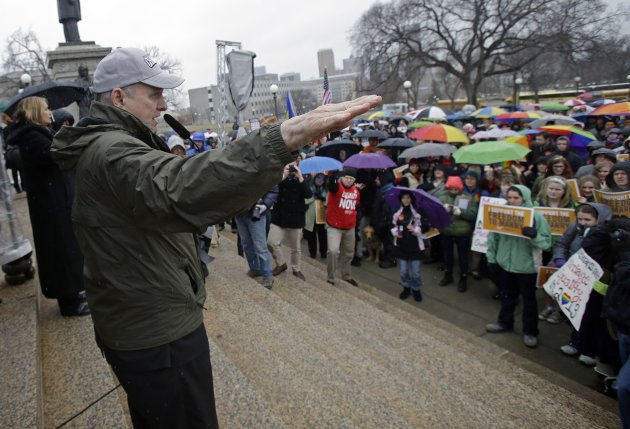Republican senators on Sunday pressed U.S. President Barack Obama to intervene in Syria’s civil war, saying America could attack Syrian air bases with missiles but should not send in ground troops.
Pressure is mounting on the White House to do more to help Syrian rebels fighting against the government of President Bashar al-Assad, which the Obama administration last week said had probably used chemical arms in the conflict.
Neutralizing the government forces’ air advantage over the rebels “could turn the tide of battle pretty quickly,” Republican Senator Lindsey Graham told CBS’s “Face the Nation.”
“One way you can stop the Syrian air force from flying is to bomb the Syrian air bases with cruise missiles,” the South Carolina senator said.
Graham said international action was needed to bring the conflict to a close but “You don’t need boots on the ground from the U.S. point of view.”
More than 70,000 people have died in Syria’s two-year-old civil war. So far, the United States has limited its involvement to providing non-lethal aid to rebels.
Obama said on Friday the use of chemical weapons in Syria would be a “game changer” for the United States, but made clear he was in no rush to intervene on the basis of evidence he said was still preliminary.
The U.S. fears anti-Assad Islamist rebels affiliated to al Qaeda could seize the chemical weapons, and Washington and its allies have discussed scenarios where tens of thousands of ground troops go into Syria if Assad’s government falls.
INTERNATIONAL FORCE
Senator John McCain, the Republican presidential candidate in 2008, said the United States should step up its support for Syrian rebels even if it turns out that Assad’s forces have not used poison gas in the conflict.
“We could use Patriot (missile) batteries and cruise missiles,” the Arizona lawmaker, an influential voice on military issues in the U.S. Senate, told NBC’s Meet The Press.
McCain said an “international force” should also be readied to go into Syria to secure stocks of chemical weapons.
“There are number of caches of these chemical weapons. They cannot fall into the hands of the jihadists,” he said.
—-
So the Republicans, or specifically the GOP Establishment, still believe that it is the obligation of the United States to police the world. What do you think? Click below for the full article.
http://in.reuters.com/article/2013/04/28/usa-syria-idINDEE93R05220130428


